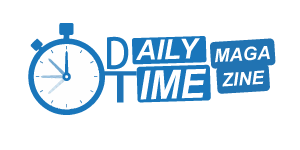There is a lot of excitement when you get paid early for the first time. It can be overwhelming to see all those numbers and not know what to do with them. You might have a set amount to spend on bills and expenses every month but still have some leftovers that can go towards savings or other things. The following are some examples of things people do with their early paychecks:
Paying off debt
Now that you’ve got some extra cash, it’s time to pay off some debt. So if you’re carrying credit card debt, student loans and car loans, this may be the perfect time to pay them off.
There are many ways to do this but one of the most common methods is through a balance transfer. With a balance transfer, you move your existing balances (let’s say $5,000) from one credit card onto another with a lower interest rate and better terms—no more worrying about late fees or paying high-interest rates.
Treat yourself
So, you’ve worked hard. You deserve a treat! This is the time to buy that thing you have wanted for a long time. Maybe it’s something small like a new pair of shoes or something big like renovating your kitchen. So whatever it is, enjoy the feeling of getting what you want and see how the extra money helps make life more enjoyable.
Unexpected mishaps
What happens if you or your family members get sick? What about accidents and emergencies? You can’t predict when these things might happen, but you can prepare for them.
A good early paycheck strategy is to set aside some money each month in a savings account that is immediately accessible (you don’t want to wait until the end of the year). This emergency fund will help protect you from sudden expenses and allow you to think more clearly during times of stress.
“Once the money hits your account, you can start paying bills earlier, saving earlier, investing earlier, and more” this is what experts at SoFi suggest!
Saving up for an emergency fund
An emergency fund is money you save specifically for emergencies, so you don’t have to put your credit card on the chopping block when something unexpected happens. The amount of money you should save depends on your income and how quickly you think you can pay off whatever it is that’s causing the emergency. If it’s a large sum of cash, like a car repair or an illness in your family, then it would be good to try and put away at least three months’ worth of expenses.
Savings Goals
The first thing you should do with your early paycheck is set a savings goal. This can be a specific amount of money you want to save, like $500, or it could be something broader, like an emergency fund. A savings goal helps you track what you’re saving for and helps keep your spending in check. If your savings goal is small enough (like $500), it may not make sense to open up another bank account just for that purpose.
When you have an early paycheck, the possibilities are endless. You can use it for whatever you want to do with it! Just remember that you don’t need to spend all of your money on one thing and that saving up for emergencies is always a good idea.
































